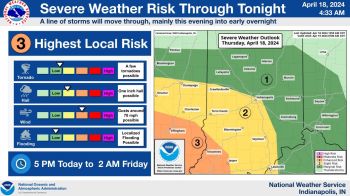SAN FRANCISCO-A case where a couple in California is suing the Monsanto Company over claims that the weed killer Roundup caused both of them to develop the same type of cancer could have ramifications in Indiana.
Monsanto was acquired by Bayer in 2018 for $66 billion. In an effort to receive regulatory clearance for the deal, Bayer announced the sale of significant portions of its current agriculture businesses, including its seed and herbicide businesses, to BASF, a German chemical company and the largest chemical producer in the world.
Monsanto has been caught up in numerous lawsuits over the years, one of which involves Alberta and Alva Pilliod. They bought a home in California in 1982 and began regularly spraying Roundup at their home and other home and other homes until 2017.
In June of 2011, after 30 years of spraying Roundup Mr. Pilliod was diagnosed with diffuse large B-cell lymphoma, a form of Non-Hodgkin lymphoma. Then in March of 2015, Mrs. Pilliod was diagnosed with B-cell lymphoma of the central nervous system.
That has both them and their attorney, Michael Miller, irate. Miller is a Senior Partner at the Miller Firm LLC.
“Monsanto has been anything but encouraging. Their position to this day is that their product does not increase the risk of cancer and that the World Health Organization is wrong. They think the scientists who have done their studies are wrong,” Miller said.
In the nearly 20 years of intensifying exposure, scientists have been documenting the health consequences of Roundup and glyphosate in our food, water and air.
Miller’s firm represents 2,000 plaintiffs with Non-Hodgskin’s lymphoma.
“We’re gonna keep trying them. If Monsanto does not want to resolve this, then we’re going to keep trying them as far as the eye can see,” Miler said.
Many people nationwide could be affected by this, but Miller says farmers, especially, need to be careful.
“Wherever agriculture is active is where you’ll see higher incidents of it. Any place where they’re wheat farming, soybean farming, or fruit farming is at risk,” Miller said.
Indiana certainly relies on its agriculture.
How it Could Affect Indiana
Michael Bennett is the Editor-in-Chief of WeedKillerCrisis. Since 1999, he’s worked across a multitude of areas of consumer protection including defective products, environmental issues, identity theft, predatory lending.
Roundup is a glyphosate-based herbicide. Bennett says according to estimates from the U.S. Geological Survey, which maintains a database of herbicide and pesticide used in farming in the 48 continental states, Indiana placed ninth out of all states in glyphosate used in 2016.
Indiana’s farmers, Bennett says, used a combined 13.1 million pounds of the weed killer in 2016, which represents a slight drop from the peak recorded in 2014. Still, glyphosate use in Indiana has surged since 1992.
There’s no doubt that the people who likely are at the greatest risk of health problems due to glyphosate and Roundup are those who have personally used the product. This includes farmers, farm workers, food production workers, groundskeepers, landscapers, professional gardeners and homeowners.
Miller says it’s not just the farmers who get exposed.
“The wives of the farmers and the children of the farmers have a higher glyphosate level in their bloodstream,” Miller said.
If you think you have become sick or diagnosed with a serious illness, including any type of cancer, after using Roundup, you need to call an attorney immediately and have that attorney take a look at your case.
What to do with Roundup Now
If you feel uneasy using Roundup, Miller says there are alternatives you can try.
“You can spray vinegar. You can spray other herbicides that have not been linked to Non-Hodgkins lymphoma,” Miller said.
In a statement from Bayer they assure their products are safe for people to use.
Statement From Bayer:
“While we have great sympathy for these plaintiffs, we are confident that our glyphosate-based herbicides were not the cause of their injuries, and we will vigorously defend them at trial. The extensive science over four decades demonstrates that our glyphosate-based herbicides are safe for use and not carcinogenic, and we continue to believe the evidence in this case will show that our products are not responsible for the injuries at issue.”
The Pilliod-vs Monsanto case is supposed to have a verdict soon.
(PHOTO: The Washington Post/Getty Images)












